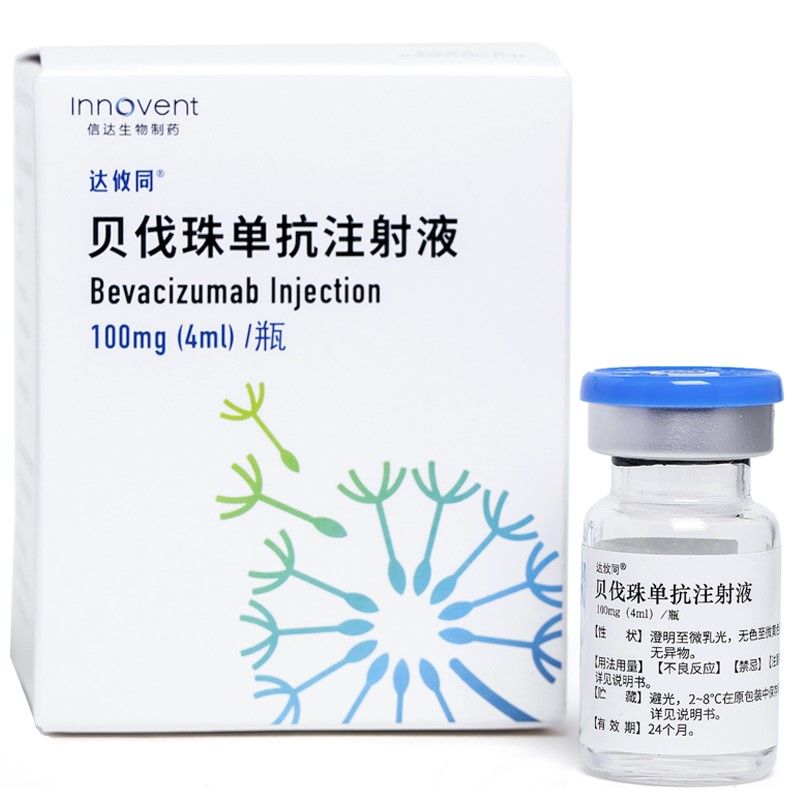- Bone Health
- Immunology
- Hematology
- Respiratory
- Dermatology
- Diabetes
- Gastroenterology
- Neurology
- Oncology
- Ophthalmology
- Rare Disease
- Rheumatology
Byvasda Shows Promise in Combination With Sintilimab for Patients With HCC
Investigators report survival data for the bevacizumab biosimilar Byvasda with sintilimab (Tyvyt) in hepatitis B virus–associated advanced hepatocellular carcinoma (HCC).
Positive findings were reported for the bevacizumab biosimilar Byvasda in combination with the PD-1 inhibitor sintilimab (Tyvyt) for the first-line treatment of patients with advanced hepatocellular carcinoma (HCC).
Byvasda was developed by Innovent Biologics and sintilimab was developed by Innovent and Eli Lilly. A supplemental new drug application is under review with China’s National Medical Products Administration for the therapy combination.
The open-label ORIENT-32 study randomized patients 2:1 to the sintilimab-bevacizumab biosimilar combination (n = 380) or sorafenib (n = 191). Patients in the combination arm received intravenous sintilimab (200 mg every 3 weeks) plus intravenous bevacizumab biosimilar (15 mg/kg every 3 weeks). The sorafenib dosage was 400 mg orally twice daily.
At a median follow-up of 10 months, the independent radiological review committee–assessed median progression-free survival (PFS) was 4.6 months (95% CI, 4.1-5.7) for patients in the combination arm vs 2.8 months (95% CI, 2.7-3.2) for the sorafenib group (HR, 0.56; 95% CI, 0.46-0.70; P < .0001).
Median overall survival (OS) was significantly longer for patients in the combination arm vs the sorafenib group: median not reached (95% CI, not reached-not reached) vs 10.4 months (95% CI, 8.5-not reached; HR 0.57, 95% CI, 0.43-0.75; P < .0001).
Investigators said the most common grade 3/4 treatment related adverse events (TRAEs) were hypertension (14% of the sintilimab-bevacizumab biosimilar group vs 6% of the sorafenib group) and palmar-plantar erythrodysaesthesia syndrome (none vs 12%, respectively).
Serious adverse events were noted in 32% of patients in the combination arm vs 19% of patients in the sorafenib group. TRAEs leading to death occurred in 6 (2%) and 2 (1%) patients in the combination vs sorafenib groups, respectively.
“Sintilimab in combination with bevacizumab biosimilar [Byvasda] showed significant improvements in OS and PFS compared with sorafenib in the first-line treatment of Chinese patients with unresectable, hepatitis B virus [HBV]-associated HCC, with no new safety signals,” the investigators said.
In the safety and activity lead-in portion of the trial (n = 24), ≥ grade 3 TRAEs occurred in 7 (29%) patients.
"ORIENT-32 is the first large-scale study to show the benefit of first-line treatment in HBV-associated HCC with combination immunotherapy,” said lead author Fan Jia, MD, of Zhongshan Hospital of Fudan University, Shanghai, China.
Byvasda was approved in China in June 2020. Sintilimab is approved in China and a biologics license application for the agent was accepted for review by the FDA in May 2021.
Newsletter
Where clinical, regulatory, and economic perspectives converge—sign up for Center for Biosimilars® emails to get expert insights on emerging treatment paradigms, biosimilar policy, and real-world outcomes that shape patient care.


